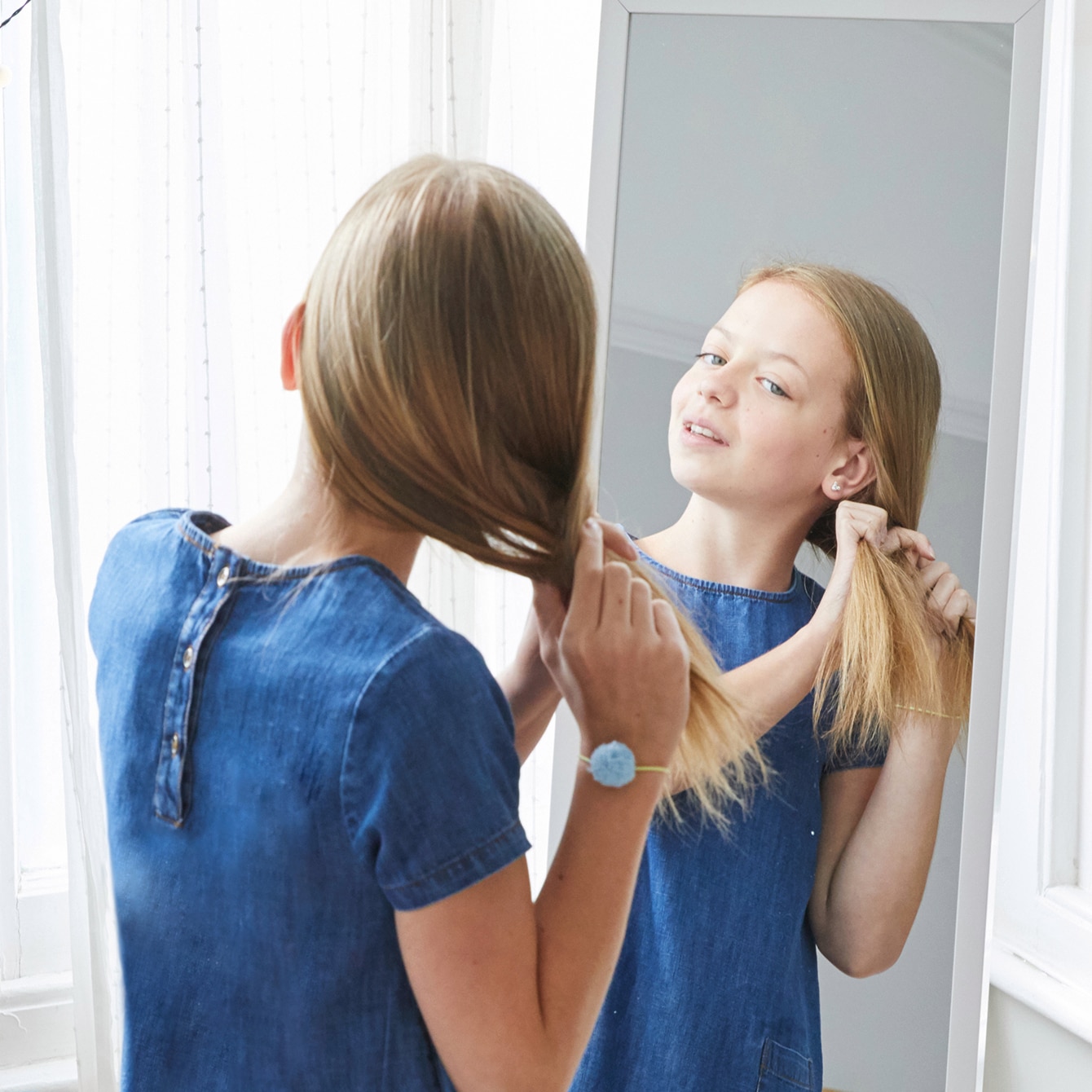Talking about our bodies is like an unwritten rule in female friendship – many of us do it constantly and automatically: "I feel fat in these jeans," "I’ve put on so much weight," or "Gosh, my skin looks awful today." Talking about your looks might seem like a way to bond with your child and friends, but it’s worth considering what effect it could have.
Use our action checklist to stop the ‘fat talk’ and start a new kind of conversation for a positive body image – yours, your friends' and your child's.
Teach your child to talk positively about their body
If you're not guilty of these kinds of put-me-downs, then you're in the minority. A study of female college students, published by the Psychology of Women Quarterly, found that 93% engaged in this type of talk – dubbed ‘fat talk’ – and a third did so regularly. The study found those who complained about their weight more often were likely to have lower satisfaction with their bodies – irrespective of their actual size.
When we talk in this way our children pick up on it. It may seem to them that physical appearance is how women judge and value themselves and each another. Is this how we want our children to evaluate themselves?
"Words can have a huge impact on our self-esteem, and constantly talking negatively about our bodies can reinforce the idea that there is only one type of body shape that is beautiful," explains body confidence expert Jess Weiner. "It’s a pattern we have to break if we want our daughters to grow up to be confident about the bodies they’ve got."
Aren’t you bored of all the body talk?
Body talk doesn’t just refer to body-bashing. Talking about your appearance, even in a positive way, can contribute to low self-esteem by placing undue attention on certain physical features. It’s all about beauty psychology – by telling a friend they look great and following up with "Have you lost weight?", you’re reinforcing the stereotypical view that skinny equals beautiful.
By discussing your gruelling exercise or diet regime or fluctuating weight, you’re implying that weight is the primary factor in what it means to be fit and healthy.
Less fat talk, more fun talk
Just three minutes of fat talk can lead to women feeling bad about their appearance and increase their body dissatisfaction, according to a study titled Adverse Effects of Social Pressure to be Thin on Young Women: An Experimental Investigation of the Effects of ‘Fat Talk’ in the International Journal of Eating Disorders. Making the effort to cut it out should make you feel better about yourself. In turn, your child will pick up on the more positive language and be less likely to put herself down.
The words we use when talking about our bodies can damage our self-esteem, but they can also improve it. By focusing less on weight and body shape in your conversations, you can break the habit of reinforcing beauty stereotypes.
Action checklist How to fight fat talk and increase self-esteem
Try out Jess Weiner’s action checklist and see how much better you and your child feel about yourselves.




